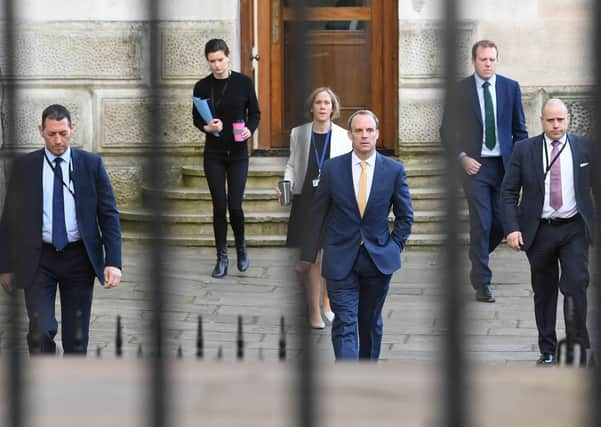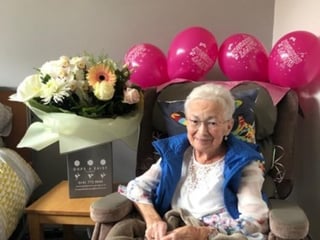I work in Covid ICU and the system works because public is sticking to lockdown – Dr Nikki Thomson


Last week I worked my first intensive care shift in over 20 years. I went in feeling apprehensive. I came out feeling safe.
As junior doctors, all anaesthetists train in intensive care. Some undertake advanced training, to work as consultants in intensive care and high dependency units.
Advertisement
Hide AdAdvertisement
Hide AdMost, like me, just keep up the skills needed to look after a seriously ill patient for the few hours it takes for them to have an operation, or be taken for an x-ray or scan.
As the effects of Covid around the world emerged, it became clear that we would need many more intensive care beds, and staff to look after many extra patients.
With colleagues, I have had fast-track updates in the care patients need, and the equipment we will be using. But it was still intimidating to get kitted out in protective equipment, and step into that world.
My first discovery was that while Covid intensive care is very busy, it is also very well organised, and currently neither overwhelmed, nor overwhelming.
This area was not initially designed as an intensive care unit. Space is tight; there is a lot of equipment, and a lot of staff to fit in. However real thought and planning have gone into making best use of the space available.
Well-staffed and compassionate
Covid intensive care is well staffed. Many of us do not normally work in intensive care, but we are well supported by those who do. Everyone brings valuable skills.
As an anaesthetist, I am used to putting in the lines and setting up the monitoring that intensive care patients need. Theatre nurses are experienced in looking after patients who are anaesthetised or heavily sedated. Not everyone on the team will have all the skills needed, but the team will have all those skills, with room to spare.
Covid intensive care is compassionate. We are all aware that these seriously ill patients cannot have the visits from close family that are so important, and that it is devastating for families not to be able to be with their loved ones.
Advertisement
Hide AdAdvertisement
Hide AdThe patience and forbearance of families is humbling, as is the gratitude so often expressed for the care being provided.
Very hot, very tiring, but working
Covid intensive care is very hot, and very tiring. Everyone must wear full personal protective equipment, all the time. Not just medical and nursing staff but physios, technical staff, cleaners. Everyone.
In full PPE you can’t eat, or drink, or go to the loo. You dehydrate very quickly. No one could do a 12-hour shift in full PPE. Every few hours you need to take it off; discard it as contaminated; have a break; put on new equipment and start again.
We get through a lot of PPE every day; it is important that supplies keep arriving.
And Covid intensive care is working. Sadly, I know that of the patients I helped to look after, it is likely that many will not survive. But I also know that every single patient is getting the best, most up-to-date, most compassionate of care. This works, and it can continue to work.
In Tayside, we have more than doubled our intensive care beds, and have more than that again ready, with equipment and staff, as soon as they are needed. Almost overnight, the NHS has changed how we do things; that is a big part of this success.
But it is only a success because everyone in Scotland has changed how they do things; the fewer people who catch Covid-19, the fewer will be desperately ill, and our services will continue to cope. So stay home. Stay safe. And for what you are doing already, thank you.
Dr Nikki Thomson is an NHS anaesthetist and deputy chair of BMA Scotland
A message from the Editor:
Advertisement
Hide AdAdvertisement
Hide AdThank you for reading this article on our website. While I have your attention, I also have an important request to make of you.
With the coronavirus lockdown having a major impact on many of our advertisers - and consequently the revenue we receive - we are more reliant than ever on you taking out a digital subscription.
Subscribe to scotsman.com and enjoy unlimited access to Scottish news and information online and on our app. With a digital subscription, you can read more than 5 articles, see fewer ads, enjoy faster load times, and get access to exclusive newsletters and content. Visit www.scotsman.com/subscriptions now to sign up.
Our journalism costs money and we rely on advertising, print and digital revenues to help to support them. By supporting us, we are able to support you in providing trusted, fact-checked content for this website.
Frank O’Donnell
Editorial Director
Comments
Want to join the conversation? Please or to comment on this article.
